Are you looking for a specific topic? Use the search function at the top right.
Sind Sie auf der Suche nach einem bestimmten Thema? Nutzen Sie die Suchfunktion oben rechts.
Wenn Sie unser Magazin kostenfrei abonnieren möchten, schicken Sie eine Mail mit dem Betreff FELD und Ihren Kontaktdaten an: feld@zalf.de.
Sie möchten die neuen FELD-Ausgaben lieber online nachlesen?
Dann registrieren Sie sich für den Newsletter auf unserem Online-Blog zum Magazin: www.quer-feld-ein.blog
FELD 01/2022
- Text
- Articifial intelligence
- Precision farming
- Intensification
- Patchcrop
- Biodiversity
- Climate
- Agriculture
- Farmers
- Ecosystem
- Zalf
- Researchers
- Sustainable
- Landscape
- Soil
- Agricultural
Patchcrop Patchcrop MORE
Patchcrop Patchcrop MORE DIVERSITY IN THE FIELD In the »patchCROP« landscape laboratory, researchers and farmers are jointly testing a vision of the future. Instead of just one crop, up to nine crops are grown side by side in the field — exactly where they find optimal site conditions. Current management The simultaneous cultivation of several crops in a single field reduces the risk of major crop failures during extreme weather events. The cultivation system under investigation also ensures that the soil is covered year-round which protects it from being eroded and degraded. Flower strips create additional habitats for insects, birds or wild herbs. Vision of the future Barley Rapeseed Wheat Soybean Sunflower Oats Lupine Rye Maize Soils with high yield potential Flower strips Project Website 20 21
- Seite 1 und 2: FELD MAGAZINE OF THE LEIBNIZ CENTRE
- Seite 4: TITLE STORY AGRICULTURAL CHECKERBOA
- Seite 8: patchCROP patchCROP For ten years,
- Seite 12: patchCROP patchCROP First and forem
- Seite 16: Ecosystem Services Ecosystem Servic
- Seite 20: Ecosystem Services Ecosystem Servic
- Seite 26: Sustainable intensification Sustain
- Seite 30: Sustainable intensification Sustain
- Seite 34: Interview WHO PAYS THE BILL? The ch
- Seite 38: Artificial Intelligence Artificial
- Seite 42: Mission of the Leibniz Centre for A
Unangemessen
Laden...
Magazin per E-Mail verschicken
Laden...
Einbetten
Laden...
FELD (dt.)
Neu im querFELDein-Podcast
Would you prefer to read the new FELD issues online?
Then register for the newsletter on our online blog: www.quer-feld-ein.blog

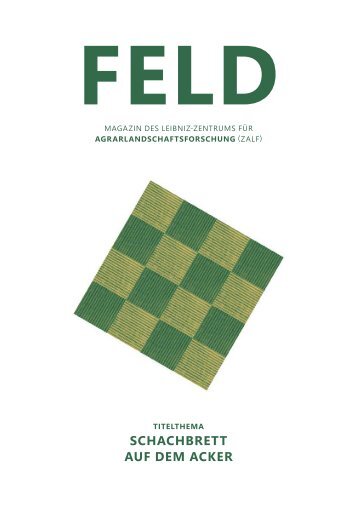
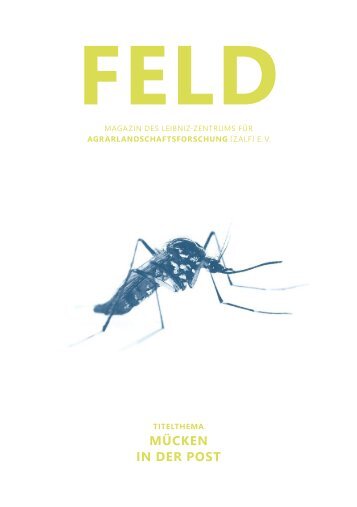
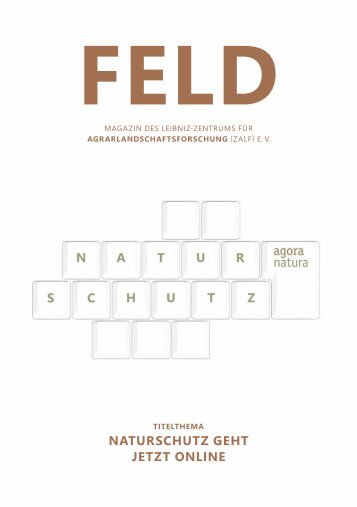
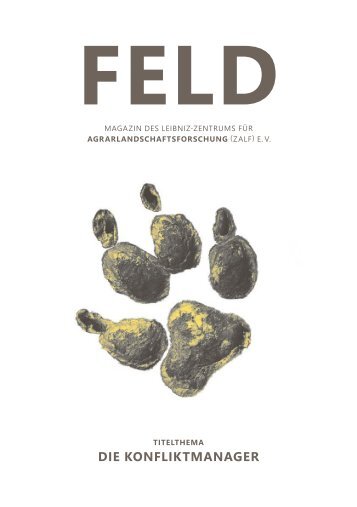
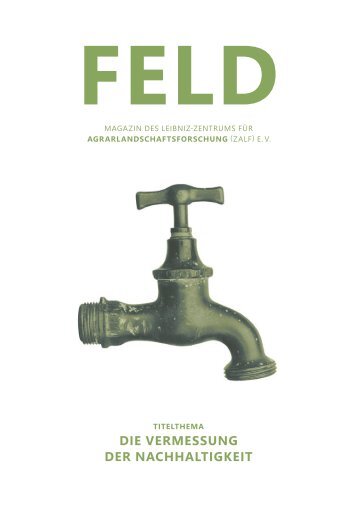
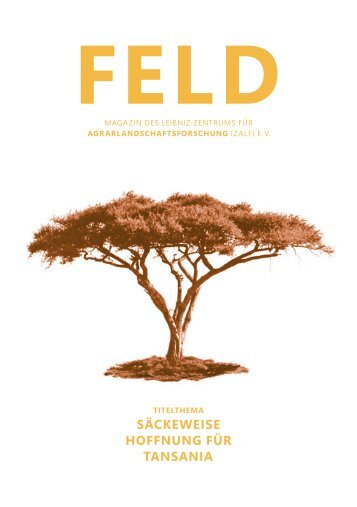
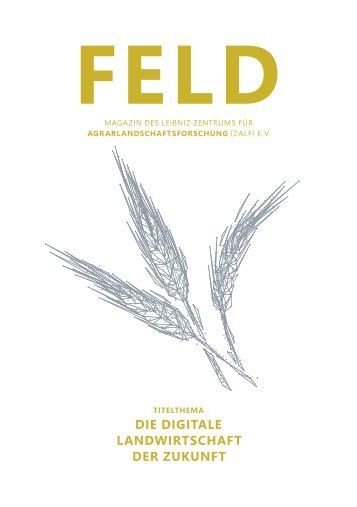
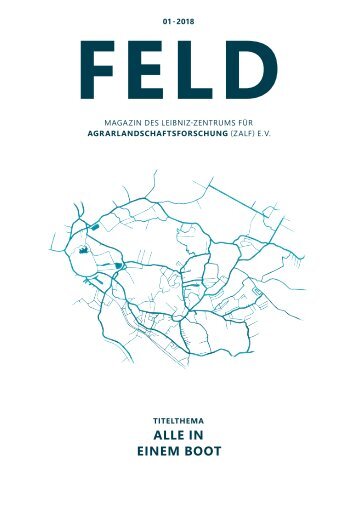
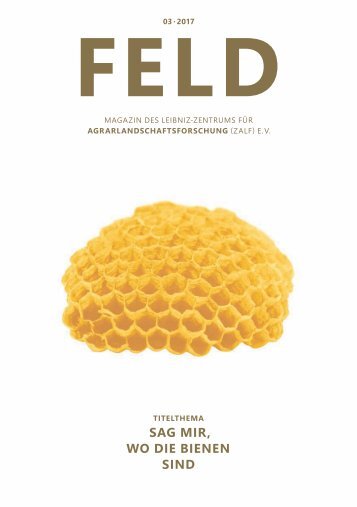
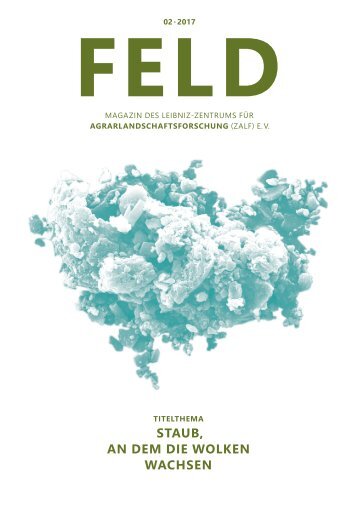

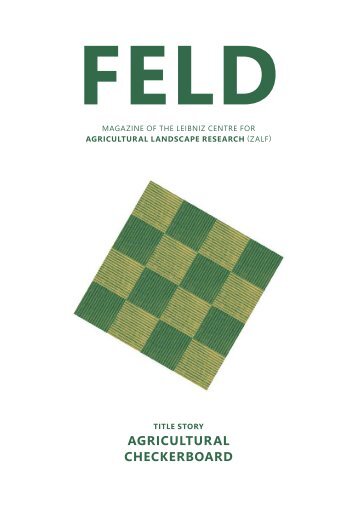

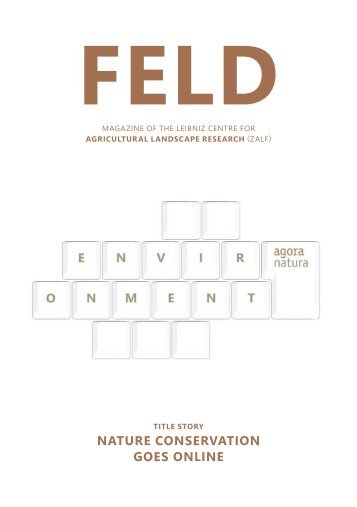








FOLLOW US
Twitter
Youtube
Instagram
LinkedIn